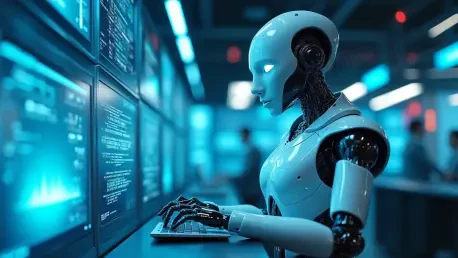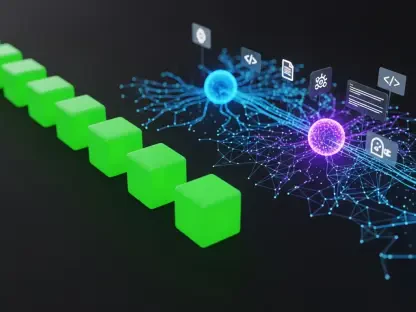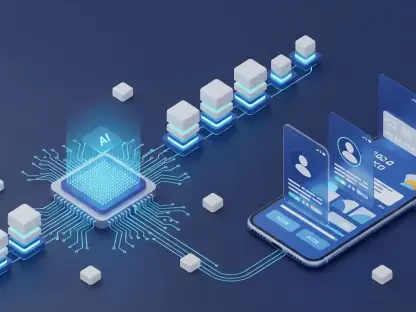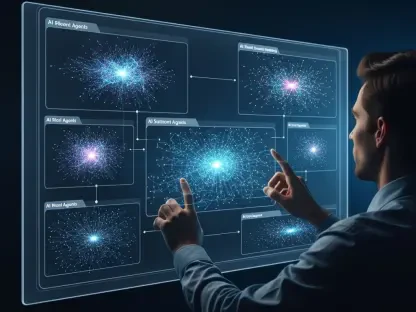The landscape of software development is experiencing a profound transformation driven by advances in artificial intelligence. AI agents are becoming increasingly integral to these technological companies, as emphasized by Alexander Embiricos, who is part of the Codex team at OpenAI. He has stated that AI is poised to change the way coding is performed, predicting that the upcoming years will witness notable shifts in coding practices. This assertion is not without basis; currently, AI tools assist developers, working alongside them to streamline coding processes and improve efficiency. However, the potential of these AI agents exceeds mere collaboration. A significant transition toward greater autonomy is anticipated, wherein AI agents could operate largely independent of human intervention, connected directly to the necessary tools. Such developments indicate a shift in dynamics; software will increasingly be crafted by AI rather than through the traditional human-dominated development practices.
At OpenAI, this transition is already taking shape as AI-generated code more frequently becomes part of the company’s codebase. Such integration reflects a growing trend where AI-created solutions now challenge conventional software development norms. This evolution necessitates a consideration of how to manage and maintain the quality of code produced largely by machines. The emergence of autonomously created code brings questions about ensuring quality, debugging, and maintaining standards previously upheld by human oversight. Embiricos highlights a transformative process whereby AI, formerly viewed merely as an assistant, now takes on a more capable role, indicating another milestone in the industry’s broader trend towards “agentic AI.”
AI’s Autonomous Approach in Software Development
In recent years, the role of artificial intelligence in coding has steadily evolved from supportive to autonomous. The groundbreaking emergence of AI agents capable of generating complex code demonstrates an innovative leap in software development methodologies. No longer confined to a secondary role, AI tools have begun acting independently, selecting the most suitable solutions from a variety of generated code options. This transition signifies a broader move toward AI autonomy, where manual intervention is minimal, except for strategic direction and quality checks. The implication here is the changing definition of a software developer’s duties. Developers transition from writing detailed lines of code to establishing overarching goals and strategies for AI agents, leveraging their capacity to craft software solutions.
This shifting paradigm has given rise to the need for new infrastructure and frameworks to effectively manage the burgeoning use of advanced AI. The design, implementation, and review stages of software creation now require developers to engage in roles akin to strategists and quality overseers. Ensuring that AI-produced code meets industry standards is increasingly complex and necessitates innovative approaches to code review and quality assurance. The evolution of AI from assistant to autonomous agent enhances productivity but also challenges traditional norms about what it means to develop software. Strategies must be developed to harness this potential while keeping human developers at the helm as essential contributors in the development process.
The Challenges and Opportunities of Autonomous AI Coding
With the rise of AI-driven software, developers face the challenge of ensuring that generated code adheres to strict quality standards and integrates seamlessly into existing systems. The capacity for AI to produce vast amounts of code necessitates a reevaluation of traditional review processes. Developers must adapt to this new paradigm by creating more dynamic code review methodologies, ensuring autonomous output meets established quality benchmarks. This will involve innovative strategies to address potential vulnerabilities and align AI-generated code with the objectives and expectations of human stakeholders. New methodologies in testing and quality control are essential as autonomous AI takes on a larger role in code creation.
As AI agents evolve to handle more autonomous coding tasks, developers will contend with both challenges and opportunities. The primary challenge revolves around maintaining quality and coherence with project goals while employing AI to increase efficiency and productivity. However, the opportunities are equally compelling. By automating routine coding tasks, AI empowers developers to focus on more strategic, innovative aspects of software development, such as conceptualizing ideas and designing complex architectures. The advent of autonomous AI coding agents represents a transformative opportunity for companies to streamline development cycles and reduce time-to-market. With these advancements, the face of software development is poised for change. Organizations capable of navigating this transition stand to benefit considerably from more efficiency and innovation.
Navigating the Future of Software Development
The realm of software development is undergoing a significant transformation, spurred by advances in artificial intelligence. AI agents are becoming integral components within tech companies, as highlighted by Alexander Embiricos from OpenAI’s Codex team. He predicts that AI will revolutionize coding in the coming years, fundamentally altering standard practices. AI tools are currently aiding developers by working alongside them to enhance coding efficiency. However, the trajectory of AI suggests a shift toward greater autonomy, where AI agents could function with minimal human supervision, directly interfacing with essential tools. This marks a shift in dynamics, as software creation will increasingly be driven by AI rather than traditional human-centric methodologies. At OpenAI, AI-generated code is already becoming more prominent in the codebase, challenging conventional software norms and necessitating a rethink of how to ensure quality and maintain standards. Embiricos points to a pivotal evolution from AI being an assistant to embracing its role as “agentic AI,” representing a major industry milestone.









